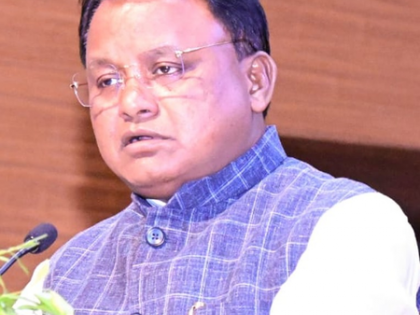Waqf Act aims at welfare of poor & underprivileged: Odisha CM
By IANS | Updated: May 8, 2025 23:37 IST2025-05-08T23:30:29+5:302025-05-08T23:37:32+5:30
Bhubaneswar, May 8 Odisha Chief Minister Mohan Charan Majhi on Thursday asserted that the new Waqf Act is ...

Waqf Act aims at welfare of poor & underprivileged: Odisha CM
Bhubaneswar, May 8 Odisha Chief Minister Mohan Charan Majhi on Thursday asserted that the new Waqf Act is aimed at the welfare of the poor, underprivileged, and minority communities.
He made the statement while speaking at a consultation meeting with representatives from various religious communities held at Lok Seva Bhawan here in connection with the Waqf Amendment Act 2025.
The meeting was organised by the Department of Scheduled Castes, Scheduled Tribes, Minorities, and Backward Classes Welfare.
According to an official statement of the Chief Minister’s Office, the Chief Minister said: "Our government is sensitive and people-centric. I am always ready to listen to you. If you have any suggestions regarding the Act, please share them with us in writing. We will make every effort to address them."
CM Majhi reiterated Prime Minister Narendra Modi’s principle of “Sabka Saath, Sabka Vishwas” as the foundation behind the amendment.
Calling for unity among all the castes and religions, Majhi said: “Regardless of caste or religion, we are all Odias. Let us work together for a prosperous Odisha.”
The event saw participation from around 250 representatives belonging to various communities across 10 districts of Odisha.
The primary goal was to raise awareness about the new Waqf law and underline the government’s commitment to empowering minorities.
Clarifying misconceptions surrounding the Act, the Chief Minister described the 2025 Amendment as “just and purposeful.”
He highlighted that before its implementation, a Joint Parliamentary Committee had held consultations with 284 stakeholders from various religious and social institutions, along with five minority commissions. The Act was then thoroughly debated and passed in both Houses of Parliament.
“As per the Waqf law, properties under it must be used solely for public welfare. They cannot be exploited for personal gain. Unfortunately, these properties have not been utilised effectively for their intended purpose, leaving many socially and economically backward for decades,” added CM Majhi.
The amendment aims to ensure better governance and proper use of Waqf properties. It emphasises the protection of the rights of Muslim women and backward sections.
“Prime Minister Modi has always stood for justice and equality for Muslim women,” noted Majhi.
The revised law introduces inclusive representation, transparent administration, and a defined appeal process allowing individuals to approach the High Court within 90 days.
District Collectors have been given the authority to resolve property disputes, enabling faster justice for all concerned. The discussion concluded with a call for collective cooperation in implementing the new law for the greater good of marginalised communities.
Disclaimer: This post has been auto-published from an agency feed without any modifications to the text and has not been reviewed by an editor
Open in app